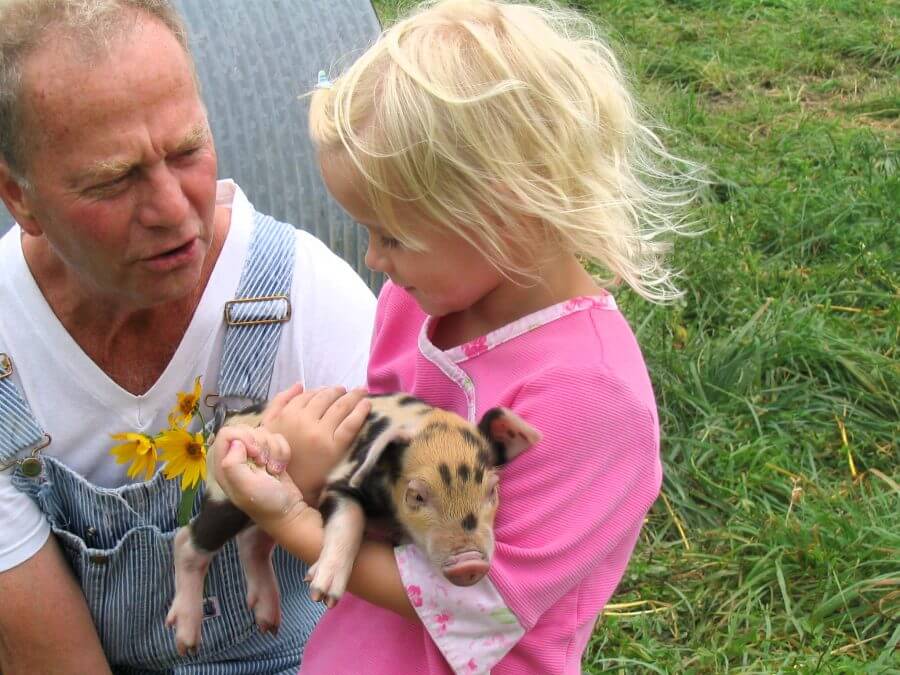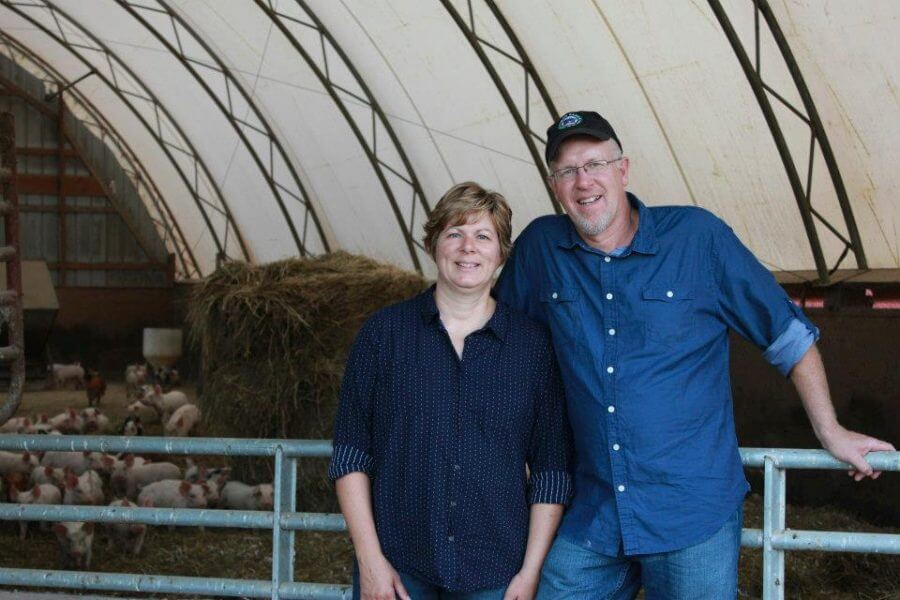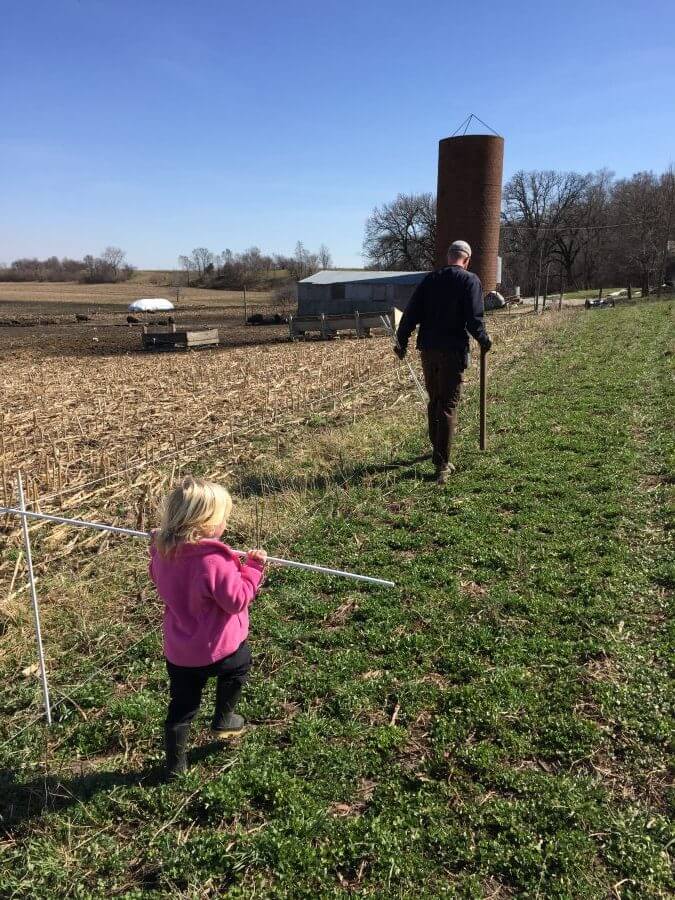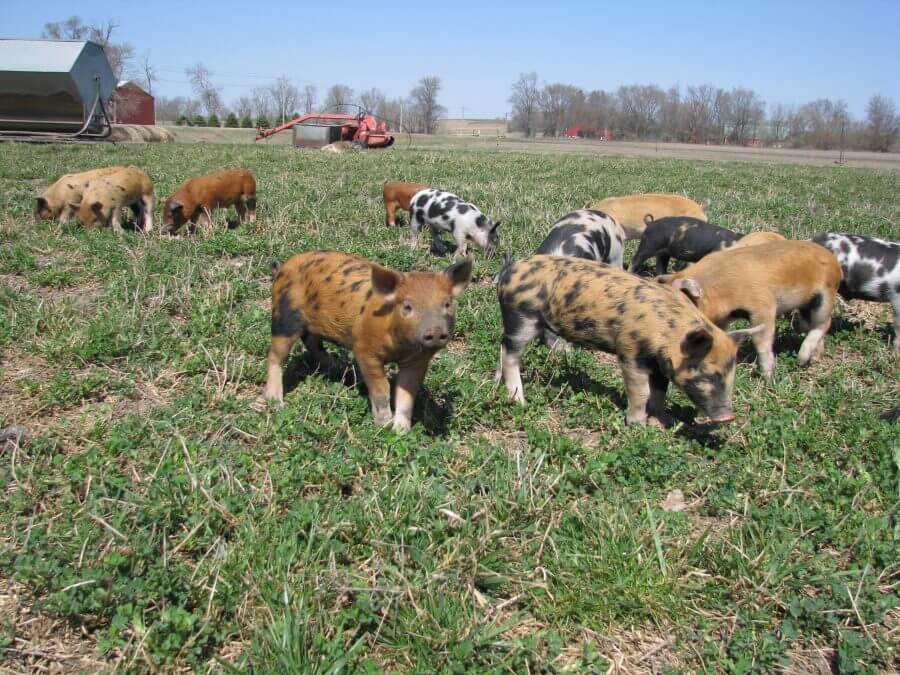Giving Thanks
November 18, 2016Recently, while I was representing our farmers at Chipotle Mexican Grill’s Cultivate Festival in Miami, I was asked why it matters how we treat our livestock on the farm if we plan to eat them in the end anyway. I have thought a lot about this subject over the years, ever since I was a little girl on our farm tending the animals that I loved so dearly. Most farmers take pride in their care of for the livestock. Here are a few of the reasons why I believe farm animal welfare matters.

Sarah’s daugher, Sophia, at a young age with Sarah’s father, Paul Willis, on the family farm.
As farmers we are not only stewards of the land, we are also charged with the great responsibility to be the caretakers of the animals we tend. It’s not just an obligation to me, but also a rewarding part of farming. I love to see our pigs playing and wrestling in the pasture together, or just wallowing in the mud on a hot summer’s day, or tearing into fresh bales of corn stalks during winter months. It gives me a real sense of satisfaction to know they are happy and being well cared for.

Farmers Steve and Shari Heun on their farm in Illinois.
According to the Brambell Report, there are five basic freedoms animals should have: 1) freedom from hunger; 2) freedom from discomfort; 3) freedom from pain, injury and disease; 4) freedom to express normal behavior; and 5) freedom from fear and distress. It’s essential that our animals have these basic freedoms. This is discussed in Dr. Temple Grandin’s 2009 book Animals Make Us Human. Our farmers ensure that their animals receive the quality treatment mandated by the five freedoms. As a result, our animals are healthier, happier and more manageable. This is where true responsibility is learned. If we don’t do our jobs right, animals may suffer or even die. Farming is a joyful and heartbreaking lifestyle.

John C. Gilbert and his daughter enjoying an afternoon fixing the fencing on Gibralter Farms together.
People who have toured our farm and observed the connection that our whole family has with our livestock often ask how we could eat an animal that we knew. My answer is that I would much rather eat meat from an animal that I knew had a happy life and was well tended to than eat meat from an animal that I had no idea what sort suffering it must have endured. As I write about my farming experience, I realize it would make everything a lot easier to understand if we were able to separate and evaluate each aspect of our farming operation. However, everything on a sustainable and humane farm is interconnected. Our livestock are raised in smaller numbers with more room to move and behave naturally on our cropland. Integrating our livestock into our crop rotation practices eliminates the need to apply chemical fertilizers that pollute our delicate natural environment. What each of us really needs to take into consideration when purchasing meat is: where does this meat come from and how were these animals raised?

Hogs on the Willis Family Farm.
Over Thanksgiving this year please take a moment to source your ingredients for your home cooked meal responsibly. Take this opportunity to support our farmers who are taking the extra measure to ensure they provide the best life possible for their livestock. Most importantly, let’s take the time to give thanks for all that went into creating our bountiful feast!
